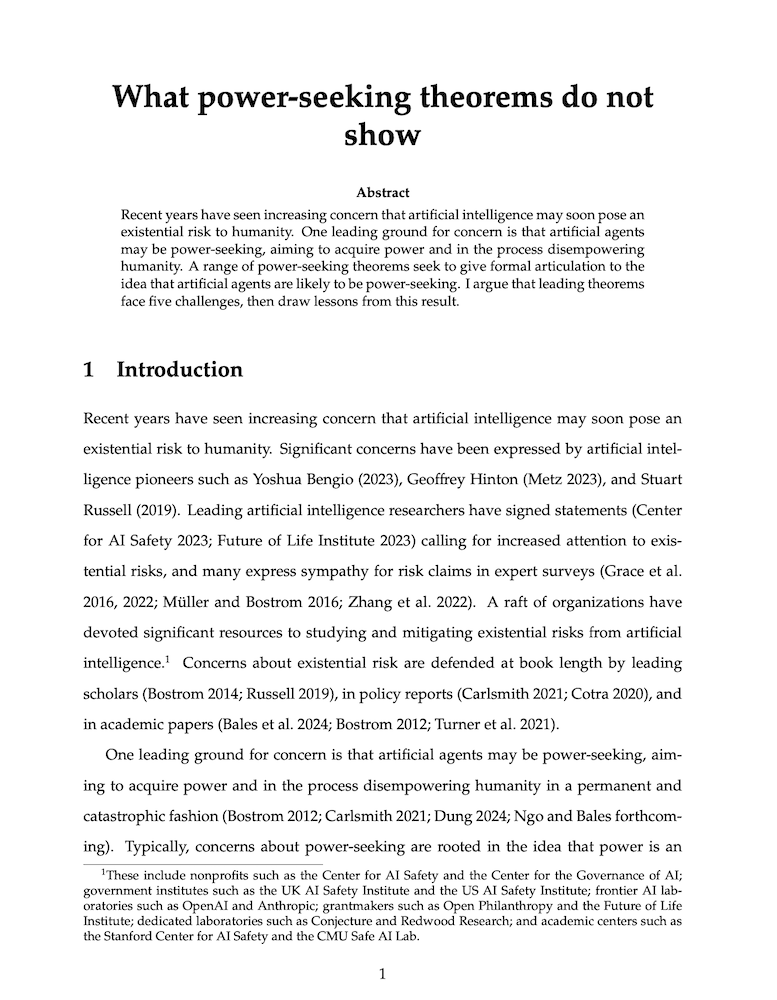What power-seeking theorems do not show
David Thorstad (Vanderbilt University)
GPI Working Paper No. 27-2024
Recent years have seen increasing concern that artificial intelligence may soon pose an existential risk to humanity. One leading ground for concern is that artificial agents may be power-seeking, aiming to acquire power and in the process disempowering humanity. A range of power-seeking theorems seek to give formal articulation to the idea that artificial agents are likely to be power-seeking. I argue that leading theorems face five challenges, then draw lessons from this result.
Other working papers
Philosophical considerations relevant to valuing continued human survival: Conceptual Analysis, Population Axiology, and Decision Theory – Andreas Mogensen (Global Priorities Institute, University of Oxford)
Many think that human extinction would be a catastrophic tragedy, and that we ought to do more to reduce extinction risk. There is less agreement on exactly why. If some catastrophe were to kill everyone, that would obviously be horrific. Still, many think the deaths of billions of people don’t exhaust what would be so terrible about extinction. After all, we can be confident that billions of people are going to die – many horribly and before their time – if humanity does not go extinct. …
Welfare and felt duration – Andreas Mogensen (Global Priorities Institute, University of Oxford)
How should we understand the duration of a pleasant or unpleasant sensation, insofar as its duration modulates how good or bad the experience is overall? Given that we seem able to distinguish between subjective and objective duration and that how well or badly someone’s life goes is naturally thought of as something to be assessed from her own perspective, it seems intuitive that it is subjective duration that modulates how good or bad an experience is from the perspective of an individual’s welfare. …
Are we living at the hinge of history? – William MacAskill (Global Priorities Institute, Oxford University)
In the final pages of On What Matters, Volume II, Derek Parfit comments: ‘We live during the hinge of history… If we act wisely in the next few centuries, humanity will survive its most dangerous and decisive period… What now matters most is that we avoid ending human history.’ This passage echoes Parfit’s comment, in Reasons and Persons, that ‘the next few centuries will be the most important in human history’. …

